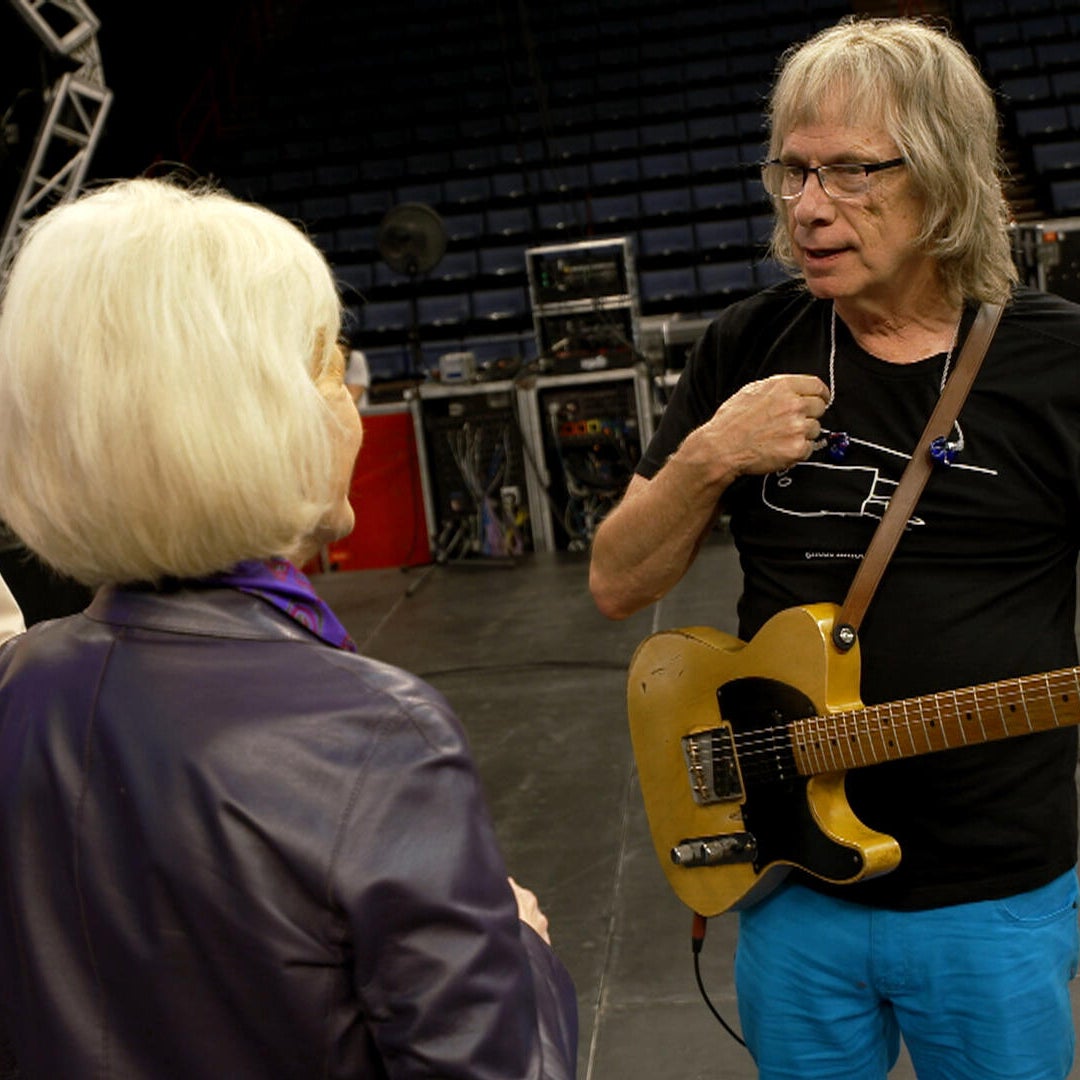
A Unique Encounter with the "Spinal Tap" Cast
When Lesley Stahl stepped onto the set of “Spinal Tap II: The End Continues,” she anticipated meeting the film’s three lead actors—Michael McKean, Christopher Guest, and Harry Shearer. Instead, she found herself face-to-face with the fictional band Spinal Tap, who were eager to play along with the 60 Minutes crew as they prepared for a rehearsal scene.
David St. Hubbins, the lead singer and guitarist played by McKean, greeted Stahl in his signature English accent. He claimed to be well-versed in 60 Minutes, joking about its reputation for uncovering corruption. “It’s famous the world round… you go after corruption and stuff. I hope you’re not gonna find any corruption here,” he said, staying in character.
On stage left, Nigel Tufnel, the lead guitarist portrayed by Guest, bowed to Stahl as she approached. When Stahl asked if his guitar was so loud because the amplifier dials went to 11—a nod to the iconic joke from the original film—Tufnel first pretended not to hear her. Then, he gestured toward the Marshall amplifiers behind them on the stage.
“This seems a little bit weird… but if I give you a boost, would you want to check it out?” Tufnel asked Stahl. She admitted she was confused, unsure whether she was in the movie or outside of it. “I thought I was interviewing Christopher Guest… I was beyond confused. Was I in the movie? Was I out of the movie?” she later shared.
After Stahl declined, Tufnel offered his lower back as a stepping stool, slapping his backside. “Or just even one of these? No? I’m just trying to, you know, make you comfortable. But clearly, it’s gone in the wrong direction, yeah?”
Director Rob Reiner watched the scene unfold, laughing heartily at the antics. He praised the actors’ improvisational skills, noting that they often created dialogue on the spot without a script. “That’s a natural gift,” Reiner said. “It’s like a jazz musician. They know how to play that. And they know how to play off each other. And that’s the fun of it.”
Reiner explained that both the first and second Spinal Tap films had no written scripts, only outlines. Stahl asked how much time he spent editing “Spinal Tap II: The End Continues.” He compared the process to “putting together a jigsaw puzzle with no picture on the box.” All the dialogue was improvised, and the editing process involved assembling the pieces of film into a cohesive script.
Favorite Scenes and Legacy
Stahl also asked Shearer, McKean, and Guest about their favorite scenes from the original film, “This is Spinal Tap.” McKean expressed his love for Guest’s solo, which he described as something he could watch over and over again. In that scene, Guest, shirtless and wearing maroon leggings, played a guitar solo while grinding a violin against an electric guitar and wagging his tongue. The scene was entirely improvised.
The mockumentary style pioneered by “This is Spinal Tap” has influenced many modern sitcoms and comedy films, including hits like “The Office” and “Parks and Recreation.” Stahl asked the stars if they realized they were creating a new genre when they made the first film. Guest responded that it was simply fun. “We loved music. We liked comedy,” he said.
“I remember writing in a diary at the time, ‘I don’t know what will happen to this, but I know that I had fun doing this,’” Guest added. When Shearer asked whose diary it was, Guest replied, “It was your diary. That’s what was so odd.” McKean quipped, “You should read it.”
A Celebration of Improvisation
The video featuring these interviews was produced by Will Croxton and edited by Patrick Lee and April Wilson. It highlights the unique charm and humor of the Spinal Tap cast, showcasing their ability to bring laughter and creativity to every scene. Their work continues to inspire and entertain audiences, proving that the magic of improvisation can create something truly special.

Post a Comment